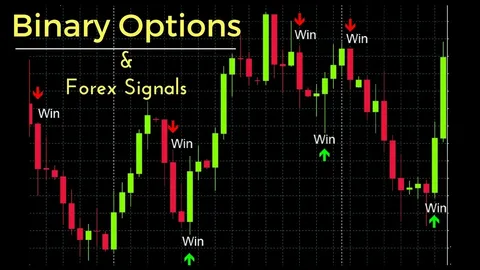Binary options trading has gained significant popularity over the years, with traders looking for ways to maximize profits through accurate signals. However, the rise of fraudulent signal providers has made it challenging to identify trustworthy sources. Understanding how to spot reliable binary signals and avoid scams is crucial for any trader seeking success in this field.
Understanding Binary Signals: What They Are and How They Work
Binary signals are indicators or alerts that suggest potential trading opportunities in the binary options market. These signals are generated based on market analysis, historical data, and technical indicators. Reliable binary signals help traders make informed decisions by predicting whether an asset’s price will rise or fall within a specified time frame.
Signal providers use different methodologies, such as algorithmic trading, human analysis, or a combination of both, to generate these alerts. While some signals come in real-time, others are pre-scheduled based on patterns and trends. Understanding the mechanics behind binary signals enables traders to differentiate between credible sources and potential scams.
Key Characteristics of Reliable Binary Signals
One of the primary ways to spot reliable binary signals is by analyzing their accuracy rate. Trustworthy providers typically offer a success rate of 70% or higher, though no system can guarantee 100% accuracy. It is essential to verify these claims through independent reviews, historical performance, and third-party testing.
Additionally, reputable signal providers offer transparency regarding their strategies and data sources. They should clearly explain their methodologies, including the indicators they use, market conditions they analyze, and risk management protocols they follow. A lack of transparency or vague explanations is a red flag indicating potential fraud.
Warning Signs of Binary Signal Scams
Scam signal providers often make exaggerated claims, such as “guaranteed profits” or “zero risk.” Any service that promises unrealistic returns should be approached with caution. Legitimate binary signals acknowledge the inherent risks of trading and do not claim infallibility.
Another common scam tactic is requiring traders to sign up with specific brokers in exchange for signals. In many cases, these brokers are unregulated or have a history of unethical practices. Reliable binary signal providers operate independently and do not force traders into exclusive brokerage agreements.
How to Verify the Credibility of a Binary Signal Provider
Before subscribing to a binary signal service, conducting thorough research is essential. Reading user reviews on independent trading forums and financial websites can provide valuable insights into the provider’s credibility. Be wary of overly positive reviews, as some scammers create fake testimonials to lure unsuspecting traders.
Another crucial verification step is testing the signals through a demo account. Most legitimate providers offer free trial periods or demo signals to allow traders to assess their accuracy before committing real funds. If a provider refuses to offer a trial or insists on immediate payment, it may be a scam.
Best Practices for Safe and Profitable Binary Trading
To minimize risks and avoid scams, traders should use a combination of strategies rather than relying solely on binary signals. Understanding technical analysis, market trends, and risk management can enhance decision-making and improve overall trading success. A well-rounded approach ensures traders do not become overly dependent on signals alone.
Additionally, working with regulated brokers and signal providers adds an extra layer of security. Regulatory bodies such as the Financial Conduct Authority (FCA) or the Commodity Futures Trading Commission (CFTC) oversee legitimate trading services. Checking for proper licensing and compliance can help traders avoid fraudulent schemes and ensure a safe trading experience.
By being vigilant and informed, traders can spot reliable binary signals and protect themselves from scams. Conducting due diligence, verifying accuracy claims, and avoiding exaggerated promises are essential steps in ensuring a secure and profitable trading journey.
